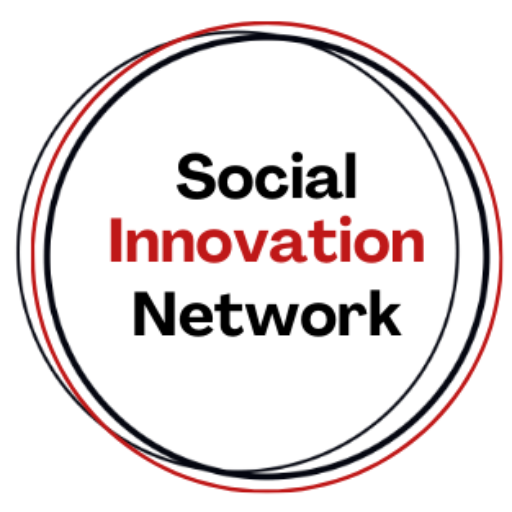Social entrepreneurship is a rapidly growing sector that aims to create social and environmental impact through business solutions. Social entrepreneurs face unique challenges as they seek to create innovative solutions to complex problems. Developing lateral thinking skills is crucial for social entrepreneurs to effectively address these challenges and create meaningful impact. In this article, we will explore how social entrepreneurs can develop their lateral thinking skills and apply them to create innovative solutions that address social and environmental challenges.
How ICT Support Creativity and Lateral Thinking Skills in Context of Social Enterprises
Social enterprises, by their very nature, strive to bring positive social and environmental impact while remaining economically sustainable. They are a crucial part of our global economy, providing innovative solutions to social problems, and creating opportunities for marginalized communities. In order to remain competitive and successful, social enterprises need to foster creativity and lateral thinking skills within their workforce. Information and Communication Technology (ICT) can provide essential tools and support to help achieve this goal.
ICT encompasses a wide range of technologies, from basic computer software and hardware to more advanced systems such as artificial intelligence and big data analysis. The use of ICT in social enterprises can help to streamline processes, increase efficiency, and provide access to valuable information. However, its most significant impact can be seen in its ability to support creativity and lateral thinking skills.
One of the primary ways in which ICT can support creativity in social enterprises is by providing access to a wealth of information and resources. The internet is a vast repository of knowledge, with countless websites, databases, and social media platforms providing a constant stream of information. By utilizing search engines and other online tools, social enterprises can quickly and easily access relevant information and data to inform their decision-making processes.
In addition to providing access to information, ICT can also be used to facilitate collaboration and communication within social enterprises. Through the use of online platforms such as video conferencing, chat rooms, and collaborative software, team members can easily share ideas, brainstorm, and work together on projects regardless of their physical location. This not only helps to foster a sense of teamwork and camaraderie but also allows for a more diverse range of perspectives and ideas to be shared, leading to more innovative solutions.

Another way in which ICT can support creativity and lateral thinking skills is through the use of digital tools and software. Design and modeling software, for example, can help social enterprises to visualize their ideas and bring them to life in a way that was previously impossible. Virtual and augmented reality technologies can provide immersive experiences that allow social enterprises to test their ideas and prototype new products and services in a risk-free environment.
Finally, ICT can also support creativity and lateral thinking skills by automating repetitive tasks and freeing up time for more strategic thinking. By using software to handle routine tasks such as data entry, scheduling, and invoicing, social enterprise employees can focus on more high-level tasks such as developing new products, refining business strategies, and exploring new markets.
In conclusion, ICT provides social enterprises with a powerful set of tools and resources that can help to support creativity and lateral thinking skills within their workforce. By providing access to information, facilitating collaboration and communication, providing digital tools and software, and automating routine tasks, ICT can help social enterprises to stay competitive, innovative, and successful. As the digital age continues to evolve, the role of ICT in social enterprises will only become more important, and those that embrace these technologies will be well-positioned to succeed in the years to come.
How Can Lateral Thinking Be Applied To Social Entrepreneurship
Lateral thinking is a problem-solving technique that involves approaching a problem from a unique or unconventional perspective to find innovative solutions. This type of thinking is crucial for social entrepreneurship, where businesses aim to create positive social and environmental impact.
Here are some ways lateral thinking can be applied to social entrepreneurship:
- Reframe the Problem: Lateral thinking can help social entrepreneurs reframe the problem they are trying to solve. By looking at the problem from a different angle, entrepreneurs can uncover new opportunities or solutions that they may have overlooked initially. This approach can lead to more creative and innovative ideas for social impact.
- Identify New Connections: Lateral thinking can help social entrepreneurs identify new connections between seemingly unrelated areas. By exploring different fields, social entrepreneurs can discover new ways to approach the problem they are trying to solve. For example, a social entrepreneur focused on reducing food waste may look to the fashion industry for inspiration and repurpose food waste as fabric for clothing.
- Prototype and Test: Lateral thinking can also help social entrepreneurs prototype and test their ideas. By using rapid prototyping techniques, entrepreneurs can quickly iterate their ideas and test them with real users. This approach allows entrepreneurs to receive feedback and make adjustments to their ideas, leading to more successful solutions.
- Collaboration: Lateral thinking can facilitate collaboration and co-creation among social entrepreneurs, investors, and stakeholders. By bringing together diverse perspectives and skills, social entrepreneurs can generate more creative and innovative ideas for social impact.
- Embrace Risk: Lateral thinking encourages social entrepreneurs to embrace risk and uncertainty. By taking calculated risks and experimenting with new ideas, social entrepreneurs can uncover innovative solutions to social and environmental challenges.

How Can Social Entrepreneurs Develop Their Lateral Thinking Skills
- Practice Mindfulness: Mindfulness is a state of being fully present and aware of one’s surroundings. Practicing mindfulness can help social entrepreneurs develop a greater awareness of their own thought patterns, which can lead to new insights and perspectives.
- Engage in Divergent Thinking: Divergent thinking is the ability to generate a wide range of ideas and solutions to a problem. Social entrepreneurs can practice divergent thinking by brainstorming and generating as many ideas as possible without judgment or evaluation.
- Challenge Assumptions: Lateral thinking involves challenging assumptions and questioning established ways of thinking. Social entrepreneurs can practice this by asking “why” questions and challenging the status quo.
- Seek Out New Experiences: Exposure to new experiences and perspectives can stimulate lateral thinking. Social entrepreneurs can seek out new experiences by traveling, attending events, or collaborating with people from different backgrounds.
- Connect with Others: Lateral thinking is often the result of collaboration and exchange of ideas. Social entrepreneurs can connect with others through networking events, mentorship programs, and online communities to gain new perspectives and insights.
- Embrace Creativity: Creativity is an essential component of lateral thinking. Social entrepreneurs can cultivate their creativity by engaging in activities that spark their imagination, such as art, music, or writing.

How Can ICT Tools Help Social Enterprises Scale Up Their Initiatives
- Streamlining Operations: ICT tools can help social enterprises streamline their operations and reduce costs. By using digital platforms for record-keeping, data analysis, and project management, social enterprises can gain better insights into their operations, identify areas for improvement, and optimize their resources. Digital platforms can also help social enterprises to automate routine tasks, freeing up time for more strategic activities.
- Marketing and Outreach: Social enterprises rely on their ability to connect with their target audience to build their brand and grow their customer base. ICT tools can help social enterprises to market and promote their products and services effectively. Social media platforms, email marketing software, and digital advertising tools are some examples of ICT tools that can be used to reach out to potential customers, build brand awareness and engagement.
- Access to Finance: One of the biggest challenges that social enterprises face when scaling up their initiatives is accessing finance. ICT tools such as crowdfunding platforms, peer-to-peer lending platforms, and online fundraising platforms can help social enterprises to access the capital they need to grow. These platforms allow social enterprises to connect with a wider pool of investors and donors, making it easier to raise capital quickly and efficiently.
- Collaboration and Networking: Collaboration and networking are essential for social enterprises looking to scale up their initiatives. ICT tools such as video conferencing, online forums, and social media platforms can help social enterprises to connect with other organizations, share knowledge, and build relationships. This can help social enterprises to identify new opportunities, access new markets, and develop new products and services.
To sum up, lateral thinking is a valuable skill that social entrepreneurs can develop to create innovative and effective solutions to complex social and environmental challenges. By cultivating habits such as mindfulness, divergent thinking, and challenging assumptions, social entrepreneurs can become more adept at identifying new connections and opportunities, prototyping and testing new ideas, and collaborating with diverse stakeholders. By embracing risk and creativity, social entrepreneurs can leverage lateral thinking to drive positive social change and create a sustainable future.
Author: Anita Gagovska
This article is initially published on the ModernNonprofit website.






